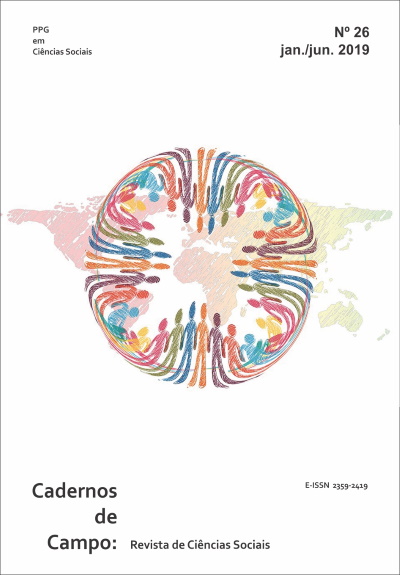Economia de conflito e paz
Palavras-chave:
Economia de troca, Economia de apropriação, Economia de conflito, Economia de paz, Modelo de escolha racional, Teoria dos jogos, Economia de redes,Resumo
Apresentamos uma visão geral do campo da economia de conflito. Começamos explicando distinções importantes entre a economia padrão de livros didáticos e economia de conflito em relação a suposições, assunto e inter-relações entre economia e conflito. Em seguida, fornecemos resumos de teorias econômicas selecionadas e evidências empíricas que, juntos, ajudam a revelar aspectos importantes do conflito - e da paz - por meio de uma lente econômica. Entre os tópicos abordados na visão teórica e empíricau, por que é “racional” que líderes políticos às vezes matem civis em massa (e o que pode ser feito para evitar isso), como normas sociais de cometer danos contra grupos externos podem se propagar (ou ser interrompido), por que pode ser difícil desenvolver leis e instituições para promover a paz estável e como os esforços de terceiros para promover a paz podem às vezes piorar as coisas. Por último, fornecemos amostras de recursos de dados, arquivos e periódicos de trabalho, e leituras que consistem em grandes livros-texto, manuais e livros editados no campo da economia de conflito.
Downloads
Referências
ADAMS, K. R. Attack and conquer? international anarchy and the offensedefense-deterrence balance. International Security, Cambridge, v.28, n.3, p.45-83, 2003/2004.
ANDERTON, C. H.; BRAUER, J. On the economics of genocides, other mass atrocities, and their prevention. In: ANDERTON, C. H.; BRAUER, J. (ed.). Economic aspects of genocides, other mass atrocities, and their prevention. New York: Oxford University Press, 2016a. p.3-27.
ANDERTON, C. H.; BRAUER, J. Genocide and mass killing risk and prevention: perspectives from constrained rational choice models. In: ANDERTON, C. H.; BRAUER, J. (ed.). Economic aspects of genocides, other mass atrocities, and their prevention. New York: Oxford University Press, 2016b. p.143-171.
ANDERTON, C. H.; CARTER, J. R. Principles of conflict Economics: the political Economy of war, terrorism, genocide, and peace. 2.ed. New York: Cambridge University Press, 2019.
BAS, M.; SCHUB, R. Mutual optimism as a cause of conflict: secret alliances and conflict onset. International Studies Quarterly, Beverly Hills, v.60, n.3, p.552-564, 2016.
BELL, S. R.; JOHNSON, J. C. Shifting power, commitment problems, and preventive war. International Studies Quarterly, Beverly Hills, v.59, n.1, p.124-132, 2015.
BETTS, R. K. Conventional deterrence: predictive uncertainty and policy confidence: compound deterrence vs. No-First-Use: what’s wrong is what’s right. Washington: Brookings Institution, 1982. (Brookings General Series Reprint, 412).
BOULDING, K. E.; PFAFF, M.; HORVATH, J. Grants economics: a simple introduction. The American Economist, Tuscaloosa, v.16, n.1, p.19-28, 1972.
BUHAUG, H.; CEDERMAN, L.; GLEDITSCH, K. S. Square pegs in round holes: inequalities, grievances, and civil war. International Studies Quarterly, Beverly Hills, v.58, n.2, p.418-431, 2014.
COLLIER, P.; HOEFFLER, A. Greed and grievance in civil war. Oxford Economic Papers, Oxford, v.56, n.4, p.563-595, 2004.
EASTERLY, W.; GATTI, R.; KURLAT, S. Development, democracy, and mass killing. Journal of Economic Growth, Norwell, v.11, n.2, p.129-156, 2006.
ENDERS, W.; JINDAPON, P. Network externalities and the structure of terror networks. Journal of Conflict Resolution, Newbury Park, v.54, n.2, p.262-280, 2010.
ENDERS, W.; SANDLER, T. Terrorism: theory and applications. In: HARTLEY, K.; SANDLER, T. (ed.). Handbook of defense Economics. New York: Elsevier, 1995. v.1, p.213-249.
ENDERS, W.; SANDLER, T. The effectiveness of anti-terrorism policies: vectorautoregression-intervention analysis. American Political Science Review, Baltimore, v.87, n.4, p.829-844, 1993.
FEARON, J. D. Rationalist explanations for war. International Organization, Cambridge, v.49, n.3, p.379-414, 1995. FISCHER, D. Preventing war in the nuclear age. Totowa: Rowman & Allanheld, 1984.
HUMAN RIGHTS WATCH. Killings in Kiwanja: the UN’s inability to protect civilians. dec. 2008. Available in: https://www.hrw.org/report/2008/12/11/killingskiwanja/uns-inability-protect-civilians. Access on: 24 apr. 2019.
KINNE, B. J. Multilateral trade and militarized conflict: centrality, openness, and asymmetry in the global trade network. The Journal of Politics, Austin, v.74, n.1, p.308-322, 2012.
KÖNIG, M. D.; ROHNER, D.; THOENIG, M.; ZILIBOTTI, F. Networks in conflict: theory and evidence from the great war of Africa. Econometrica, Chicago, v.85, n.4, p.1093-1132, 2017.
MAOZ, Z. Networks of nations: the evolution, structure, and impact of internationalized networks, 1816-2011. New York: Cambridge University Press, 2011.
MCDOOM, O. S. Predicting violence within genocide: a model of elite competition and ethnic segregation from Rwanda. Political Geography, Oxford, v.42, p.34-45, 2014a.
MCDOOM, O. S. Antisocial capital: a profile of Rwandan genocide perpetrators’ social networks. Journal of Conflict Resolution, Newbury Park, v.58, n.5, p.865-893, 2014b.
MICKOLUS, E. F. Transnational terrorism: a chronology of events, 1968-1979. Westport: Greenwood Press, 1980.
NARANG, N. Assisting uncertainty: how humanitarian aid can inadvertently prolong civil war. International Studies Quarterly, Beverly Hills, v.59, n.1, p.184-195, 2015.
POLACHEK, S. W.; SEIGLIE, C. Trade, peace and democracy: an analysis of dyadic dispute. In: SANDLER, T.; HARTLEY, K. (ed.). Handbook of defense Economics. New York: Elsevier, 2007. v.2, p.1017-1073.
REYNAERT, J. MONUC/MONUSCO and civilian protection in the Kivus. New York: IPIS, 2011.
SARKEES, M. R.; WAYMAN, F. Resort to war: 1816–2007. Washington: CQ Press, 2010.
SCHNEIDER, G.; BARBIERI, K.; GLEDITSCH, N. P. (ed.). Globalization and armed conflict. Lanham: Roman & Littlefield Publishers, 2003.









